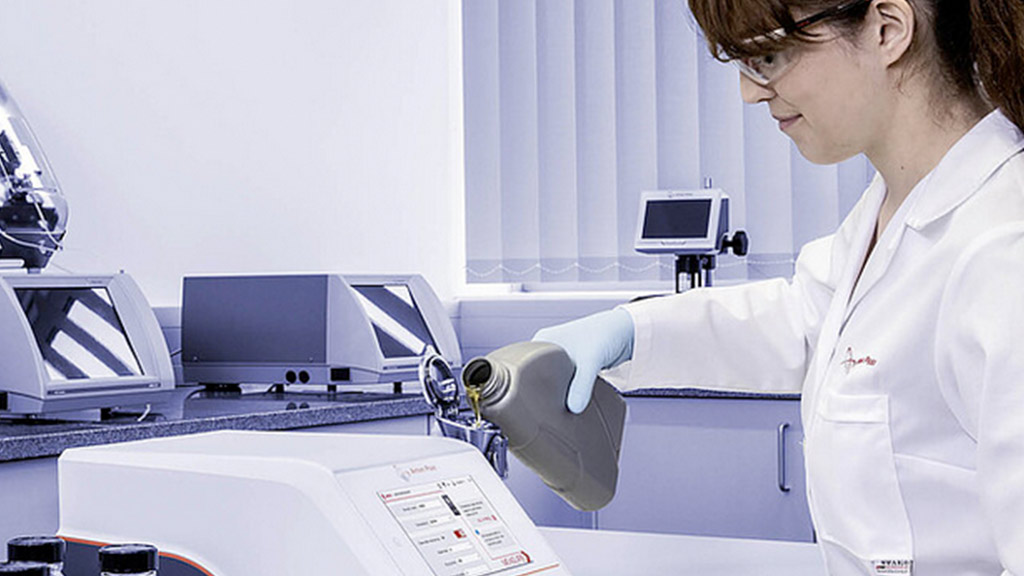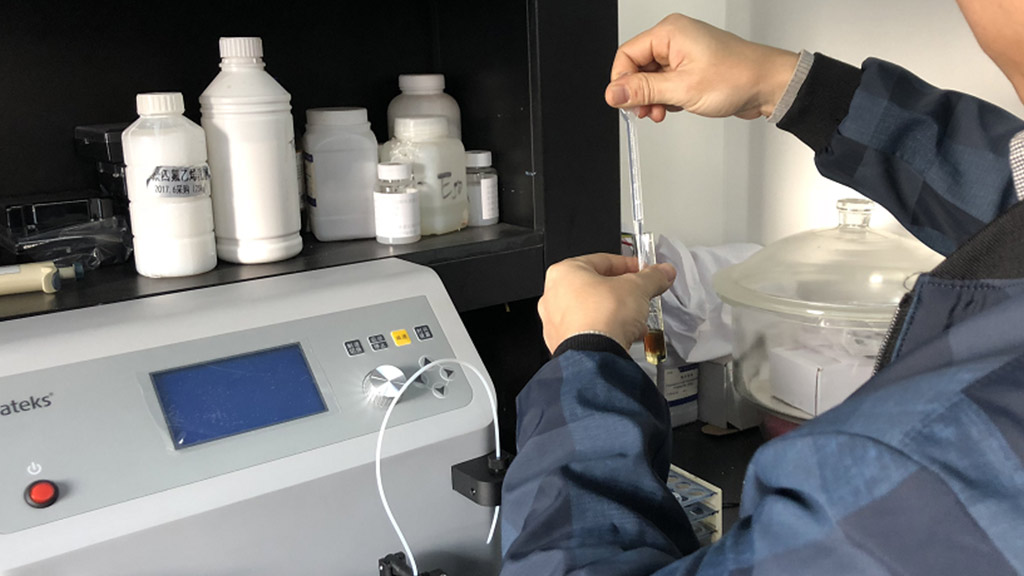Why Oil Viscosity Testing and Analysis Using Advanced Viscometers Improves Lubricant Performance and Machinery Health.

Viscosity is undoubtedly the most important property in the performance of the lubricant oil. One of the most crucial factors influencing lubricant performance and protection is its viscosity and how it varies with temperature and operating conditions. Due to its significance for oil condition and lubrication, it is frequently one of the first characteristics tested by the majority of oil analysis laboratories. Two widely used viscosity test methods are the Shear Method and Time Method. In Lube Oil testing labs oil viscosity analysis is conducted using advanced testing equipment such as Anton Paar viscometers etc.
How do we measure viscosity?
The measurement of a liquid's internal friction, or its resistance to flow, is known as viscosity. A kinematic and dynamic grading system, such as those developed by the Society of Automotive Engineers (SAE) or the International Organisation for Standardisation (ISO), is usually used to identify the viscosity range of a lubricant.
- Fluids with low viscosity can be thought of as light and thin.
- Thick and heavy is one way to characterise fluids with high viscosity.
- Engine Oil with low viscosity (0W – 20) flows more quickly than oil with high viscosity (10W – 40).
What is the Difference between Dynamic viscosity and Kinematic viscosity?
Kinematic Viscosity
The lubricant's resistance to flow and shear brought on by gravity is known as kinematic viscosity. Consider pouring two containers—one with engine oil and the other with thick gear oil to provide an example. The kinematic viscosity of a fluid controls its flow rate. Engine Oil flows more quickly because its kinematic viscosity is lower. Kinematic viscosity is measured using ASTM D445.
Dynamic Viscosity
The lubricant's resistance to flow as determined by resistance is known as dynamic viscosity. Just consider the energy needed to push a solid object through a fluid. Since Engine Oil has a lower dynamic viscosity than thick gear oil, stirring it requires less energy. Dynamic viscosity is measured by the Cold Crank Simulator (CCS) test ASTM D5293.
Importance of Viscosity in Your Oil Analysis Program
Viscosity tracking and monitoring is arguably one of the most crucial aspects of any program for oil analysis. At operating temperatures, even minute variations in viscosity can have a significant impact to the point where an oil can no longer provide sufficient lubrication which could lead to catastrophic complications for the plant or the business.
An excessive viscosity may result in:
- Lack of lubrication because of insufficient oil flow
- Overheating leading to sludge, varnish accumulation, and oil oxidation
- Gaseous cavitation brought on by insufficient oil supply to bearings and pumps
- Inadequate air detrainment or unsuitability
A notable decrease in viscosity may lead to:
- Increased mechanical friction resulting in excessive energy consumption and heat generation
- Loss of oil film leading to excessive wear
- A thinner oil film, which increases sensitivity to particle contamination
- Failure of the oil film during high loads, fluctuations in temperatures
Testing and analysis of viscosity using an advanced viscometer
To ensure that your Lubricating Oils are performing at the highest levels they must be tested at regular intervals. Testing and analysis of your oil gives you a clear indication of the health of your equipment. We at Atlas Lab are using state-of-the-art viscosity testing equipment such as the Anton Paar SVM 3001 Viscometer. It determines the oils and fuels dynamic and kinetic viscosities at 40°C (100°F), 100°C (212°F), -40°C (-40°F) and -20°C (-4°F) as well as the viscosity index (VI) automatically. Also Cloud point test, Freezing Point test and Density Test. With the ability to test up to 30 samples in an hour, it is the world's most precise and accurate viscometer.




